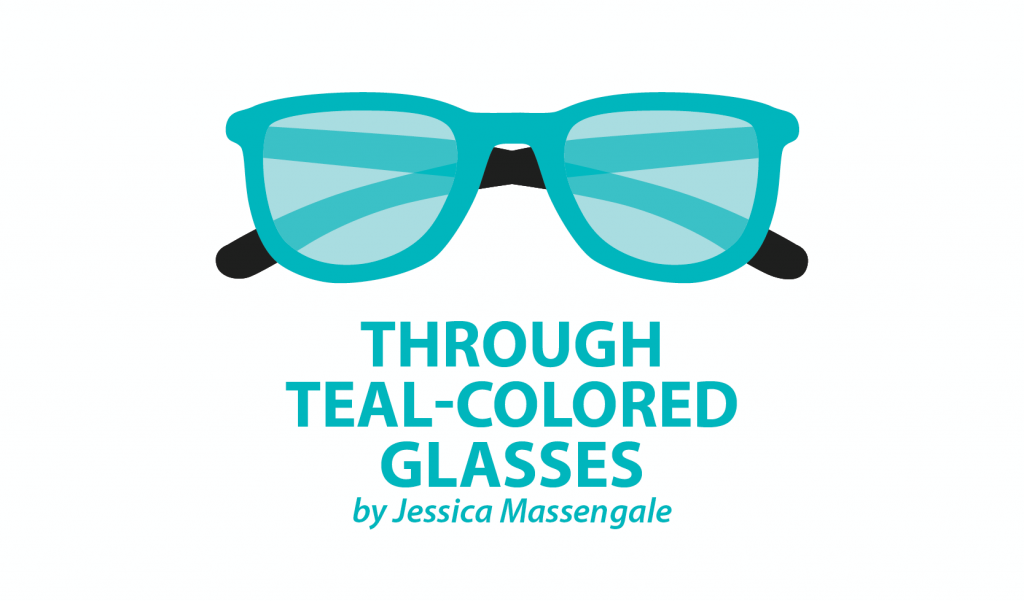What It Feels Like to Look Rare
Written by |

According to the Census Bureau, about 30 million people in the United States walk with a cane, crutch, or wheelchair. What do you do when you see someone with a visible problem? Your eyes are immediately drawn to the source, to whatever’s disturbing the “normal” flow of the human look.
The person with the “eyesore” sometimes tries to cover it up simply because they don’t want others questioning or staring. Women have the awesome chameleon capability of covering anything up with a little bit of makeup. God forbid someone see the tiny red acne on their cheeks. We have to contour our face to look flawless.
We want to keep any general problem affecting our lives hidden, especially the visible ones. Problems available for everyone to see? Who wants that? The majority of people strive to make everything seem perfect, even if their lives are in shambles. Those with a physical impairment have no choice but to show it to the world.
When I go out in public, I often get multiple eyeballs staring at me like magnets on a fridge. I know humans are curious by nature, but how uncomfortable do you think it makes me feel? At least send a smile my way when I glance back instead of looking away quickly to pretend you weren’t staring. One simple smile can really brighten up someone’s day, and in return, you’d get to see my million-dollar smile in return.
My “eyesore” is called scleroderma. My body hates itself, so for the past seven years it has been mercilessly attacking me with collagen. In this process, it has erased my beautiful caramel complexion and jaded it with large splotches of white areas, peppered with remnants of my old skin color. My fingers are so tightly packed with collagen that they’re actually frozen in place. My arms are bent at 45-degree angles, and my knees are so tight I walk with a slight limp.
I have to walk around with this 24/7. My life’s biggest problem is on display for anyone and everyone to see. It has gotten to a point where I ask strangers for help when I’m by myself. I consider it a form of bravery when one is disabled and doesn’t try to hide it. It takes in-depth mental empowerment to do this, and we all possess this confidence. We just have to harness it.
Imagine you had to walk around with an index card taped to your head that listed your biggest insecurities or problems for the entire world to see. It’s not that everyone’s opinion matters; it’s just that the visibly rare are so different-looking than the average person that you can see there’s something wrong. I have to walk around with a mental shield to pretend I don’t notice anyone staring AND at the same time keep reminding myself that I’m still pretty. Every stare I receive is like a mental bench press strengthening my mind to ignore them and carry on with my day.
It’s our turn to change society’s standards of normal.
Next time you see someone who looks sick, shoot them a smile. If you’re standing in line next to someone in a wheelchair, say “Hi!” If you see them struggling, offer help. These small gestures can close the gap between disabled and healthy. It doesn’t even have to be someone disabled; even if someone looks different than you, try your best not to make them feel different.
Having a disability makes the sick person feel rare and out-of-place in a world full of normal individuals who may never step foot in a doctor’s office. Underneath it all, we are the same as you. Our life’s story is just a little more complicated. I’m speaking for ALL of my “different-looking” family out there — in a wheelchair, toting around an oxygen tank, with a skin condition, or even missing a limb.
It’s human nature to be curious, but gawking at anyone with a rarity makes the affected person cringe on the inside. It’s like getting an extra nasty dose of a medication called reality that we really didn’t need. So, make a promise to yourself today to treat everyone you see with kindness and humility.
The power lies within you.
***
Note: Scleroderma News is strictly a news and information website about the disease. It does not provide medical advice, diagnosis, or treatment. This content is not intended to be a substitute for professional medical advice, diagnosis, or treatment. Always seek the advice of your physician or other qualified health provider with any questions you may have regarding a medical condition. Never disregard professional medical advice or delay in seeking it because of something you have read on this website. The opinions expressed in this column are not those of Scleroderma News, or its parent company, Bionews Services, and are intended to spark discussion about issues pertaining to scleroderma.







Kathryn
Your description of splotchy skin made me cry. I have to steel myself for stares during warm weather, when it's shorts-and-t-shirt season. I wish people would just ask me what's "wrong" with me than steal glances and look away. I don't know which is worse -- that behavior or the unwanted commentary from know-it-alls who announce to me that their Aunt Flossie "had what do you call it - vitiligo" or who chastise me for "getting too much sun." I guess I have to deal with it, since I feel that I have as much a right as anyone else to wear short sleeves. I can't control other people's curiosity or downright insensitivity, but I can control the way I react to it. I decided a year ago that I wasn't going to be ashamed or defensive; nor will I hide what used to be fair, unmottled Irish coloring. But I often wish I had business-sized cards to hand out, reading "It's not communicable. Ask me about it."
hilary
Thanks much for your column, Jessica. You speak articulately and for so many. And yet, the range of SC symptoms and is so broad. Well, we none of us can speak for everyone.
I wanted to comment on one line: "My body hates itself, so for the past seven years it has been mercilessly attacking me with collagen."
I'm going out on a limb here and you're welcome to delete this post, but here's a thought. Even after 18 years, my Sc isn't as severe as yours, but this is an approach that's helped me navigate through this strange relationship.
What if it isn't that your body hates itself?
On the contrary, what if your body is simply a mis-guided warrior, doing its darndest to protect you from perceived threats? Its senses may be askew, but it's trying to build up scar tissue to make you strong.
Just think about it as an alternate way to experience what's happening. It doesn't change the many unwanted transformations, the contractures, the mottled skin, the pain and fatigue and raggedy breath. But it just might help you to feel a bit more compassion for this crazy body and all it's going through.
Courage!
hz
Leslie R Crockett
This is a very good attitude to have. I have the 'invisible' types of problems that cause me chronic pain plus, I am Aspergers. This tends to ratchet up one's anxiety in social situations. For years I have said that my body hates me. I'm trying to stop this thought process. I have chronic migraines ( under better control b/c I found many of the triggers) fibromyalgia, arthritis, spinal stenosis and PTSD ( won't go into that) I look very healthy. BTW, I'm on this site because a beloved cousin has scleroderma so I want to know more about it. Thank you for the attitude adjustment suggestion.
Jenny
Thank you for sharing, my 3 year old daughter was recently diagnosed with scleroderma on her face. I am worried about her growing up and people being mean. I hope to make her a strong warrior before it is too bad. Thank you for your insight.